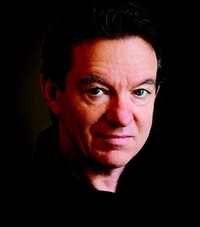Twins: And What They Tell Us about Who We Are
Lawrence Wright, Wright. John Wiley & Sons, $32.5 (208pp) ISBN 978-0-471-25220-7
Twins and their implications are illuminated by a staff reporter for the New Yorker in this compelling, well-researched overview. Anchoring the reader in the historical mystique of twinship, Wright (Remembering Satan) documents humanity's low point in studying the special nature and possibilities of twins by recapping the horrific experiments of Josef Mengele. Wright proceeds to outline the newest research being conducted regarding twins, describing how separated-twin studies have thrown open the door on the nature-vs.-nurture debate. This is tricky ground fraught with political and social-policy land mines, but Wright does an admirable job of sorting through the differing research in a well-reasoned, clearheaded manner. He also provides a plethora of anecdotes of eerie similarities between twins separated at birth, such as personal habits and choices in spouses and careers. One notable British pair who were reunited later in life shared such puzzling traits and life events as frugality, marriage to men they met at local dances at age 16 and an avoidance of voting, except for a single instance when they worked as polling clerks. They even shared the habit of pushing their noses up, which they inexplicably called ""squidging."" Clear and compulsively readable, Wright's slim book sheds light on the allure of twinship: ""The fantasized twin that we carry about in our minds is not only an idealized partner in the experience of being who we are, he is also a means of escape from the life we are living."" Informative if brief, it shows us that even in identical lives there is no escape from the solitary experience of selfhood. For those seeking more information, Wright's extensive bibliography offers a treasure trove of leads. (Feb.)
Details
Reviewed on: 12/29/1997
Genre: Nonfiction
Hardcover - 208 pages - 978-1-63026-245-7
Open Ebook - 208 pages - 978-0-470-33762-2
Open Ebook - 204 pages - 978-0-585-33446-2
Paperback - 208 pages - 978-0-471-29644-7


